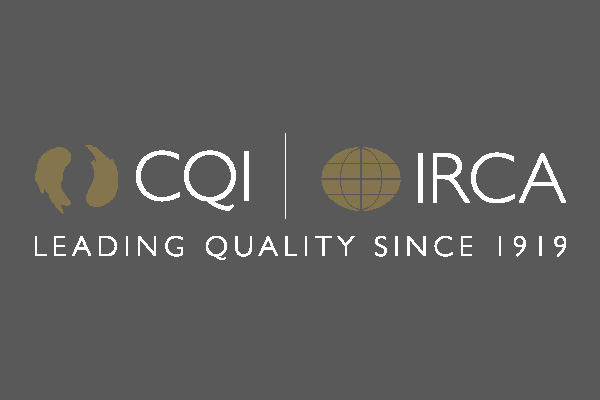
MANAGING PROCESS PERFORMANCE (PT202)
The CQI and IRCA Practitioner Quality Management courses enables you to develop your understanding of management level quality topics. And, how this knowledge applies to your within your role, organisation and industry. These courses are designed specifically for those working in a quality role who wish to develop their knowledge and skills and / or those who aspire to middle management.
The Managing Process Performance (PT202) course provides practical skills development in the management of process operation. You can find out what you’ll study, how you’ll learn and how you’ll be assessed, below.
You may also be interested in The Practitioner Certificate in Quality Management which comprises of eight courses. This includes a 10% saving on course fees. For further information download the Practitioner course brochure here.
DURATION
24 HOURS
(MINIMUM)
SUPPORT
DEDICATED
TUTOR
LEARNING
DISTANCE
LEARNING
COST
£545.00
+ VAT
LEVEL
PRACTITIONER
This course provides practical skills development in the management of process operation and delegates will develop the capability of leading teams in the development of management processes and performance measures that indicate the effectiveness of operational processes.
- Introduction to process management and the relationship between standardisation, performance management and continual improvement
- Roles in process management:
- Process management roles
- Teams
- Behaviours for effective process and performance management.
- Management techniques and tools to embed standardisation:
- Managing documentation
- Construction and use of SOPs, SPLs, visual aids and workplace organisation (5S)
- Managing risk. Construction and use of risk matrix and mistake proofing
- Managing skills and resources. Skills and competency matrix.
- Identification of key measures of process performance:
- Voice of the customer. Definitions and use of focus groups, face-to-face interviews, questionnaires, interviews and observation
- Types of data: qualitative, categorical, ordinal, discrete (or attributes), continuous (or variables) and the benefits/drawbacks of each
- Sampling methods: random, systematic and stratified
- Selecting key measures. Construction and use of CTQ Trees, requirements matrices, operational definition and link to the system level measures of performance against customer and stakeholder requirements
- Defining and analysing the measurement process. Performance of the measurement process with respect to bias, linearity, stability (variation), repeatability and reproducibility.
- Use of the following tools for displaying/analysing data:
- Check sheets and data collection forms
- Run charts
- Control charts
- Histograms
- Capability analysis.
- Management techniques and tools to monitor performance:
- Construction and use of visual management boards, description of associated management processes and tiered accountability
- Process confirmation.
- Management techniques and tools to improve performance:
- Visual management for action planning and execution
- Visual management to monitor corrective actions
- Process review
- Role of audit
- Benchmarking
All of our courses are delivered by supported distance learning – which simply means you can study at home or work, at a time – and a pace – which suits you.
Once you’ve enrolled, your dedicated tutor will contact you to arrange your induction. They’ll go through everything you need to know, and you’ll agree your learning plan.
We’ll also email your login details along with a weblink to our online learning system. Here you’ll have 24/7 access to everything you need to complete your course – your learning, study support and assessment materials and tutor will provide timely advice, support and feedback throughout your course.
This means:
- You’re not constrained to set dates/times for training – you can start when you’re ready.
- You can complete your training at a pace that’s best for you – if you have more time than expected you can accelerate your learning and complete earlier than planned.
- You can access course learning, assessment and study support materials, receive feedback and support and sit your exam at a time and place that works for you.
Once you’ve successfully completed your course you’ll receive a digital CQI and IRCA accredited certificate. It really is that simple.
- Assessment for practitioner courses is two-fold. On successful completion of the course workbook for you will sit a CQI-set, multiple-choice (30 question), open book, one hour exam. The pass mark is 66%.
- Your exam is typically facilitated through work – if this is not an option, please contact us and we’ll provide you with further information on exam options.
- When you pass the exam you will be awarded a certificate of achievement.
TYPICAL COURSE DURATION: 8 WEEKS + EXAM
This assumes you can commit to at least 4 hours of study each week. You and your tutor will agree your planned end date, during your induction.
The minimum learning hours for each course is 24.
The course resource provides additional sources for research and so study time can exceed this if you wish to get more out of the course.
The maximum course duration, set by the CQI and IRCA, for each course is 6 months and for completion of the Certificate is 3 years.
The Practitioner courses are aimed at those practising in quality and aspiring towards middle management. At the point of enrolment, we ask you to provide a brief statement on your experience, training, qualifications and study goals (or you can send your CV). Our Programme Lead will assess this to ensure the level is appropriate and will support your development aims.
Typically, we’d advise at least two years’ experience within a quality management role for these courses.
Suggested prior learning: Introduction to Process Design (FD106).
If you are unsure which level or course is right for you, you can use the CQI tool to help you decide (https://www.quality.org/training/quiz). Or, get in touch with us to request a free consultation.
On successful completion you will be awarded a certificate of achievement.
The Practitioner Certificate in Quality Management is awarded, by the CQI, following the successful completion of all eight Practitioner courses.





